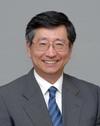東京大学大学院法学政治学研究科・法学部 グローバル・リーダーシップ寄付講座(読売新聞社)
2009年度 授業科目
1.「国連安保理と紛争解決1」
| 期間 | 2009年度前期 2単位 |
|---|---|
| 担当 | 松浦博司(客員教授、外務省経済局経済統合体課長) 北岡伸一(法学部教授) |
| 内容 |  スーダン、コンゴ民主共和国、ソマリア、中東、ハイチなど、世界の紛争のいくつかを取り上げ、その背景、現状、国連安保理の取り組みなどについて考察する。 スーダン、コンゴ民主共和国、ソマリア、中東、ハイチなど、世界の紛争のいくつかを取り上げ、その背景、現状、国連安保理の取り組みなどについて考察する。北岡教授は2004−06年に日本政府国連代表部次席代表・特命全権大使として、松浦客員教授は同代表部参事官として、安保理の議論に参加した経験を持つ。 |
| 履修資格 | 法学部、総合法政研究科、公共政策大学院の学生 人数に余裕がある場合は、他学部、他研究科からの参加を認める。 |
2.「地球規模課題と日本」
| 期間 | 2009年度後期 2単位 |
|---|---|
| 担当 | 鶴岡公二(客員教授、外務省国際法局長) |
| 内容 |  近年の地球温暖化問題を中心に、地球規模課題解決に向けて、日本の取組みを中心に国際政治の現状を考察する。 近年の地球温暖化問題を中心に、地球規模課題解決に向けて、日本の取組みを中心に国際政治の現状を考察する。鶴岡客員教授は、2007年ハイリゲンダム・サミット、2008年洞爺湖サミットにおいて、外務省地球規模課題審議官として、地球温暖化問題の合意に向けて中心的役割を果たした。 |
| 履修資格 | 法学部、総合法政研究科、公共政策大学院の学生 他学部、他研究科からの参加を認める。 |
3.集中講義 US-Japan Relations in Global Perspectives
| 期間 | 2009年度後期 2単位 |
|---|---|
| 2009年9月24日―10月5日 (15回講義) | |
| 言語 | 英語(同時通訳なし)。 |
| 担当 | Dr.Michael Auslin Director of Japan Studies and Resident Scholar in Asian Studies, The American Enterprise Institute for Public Policy Research |
| 内容 |  Title: US-Japan Relations in Global Perspectives Title: US-Japan Relations in Global Perspectives
|
| 履修資格 | Graduate students from Graduate School of Public Policy and Graduate School of Law and Politics (Students from Asian Socio-Information and Communications Course, Graduate School of Interdisciplinary Information Studies may take this course as credit of GraSPP or Graduate School of Law and Politics.) Students from other faculties including undergraduates may take this course with NO CREDIT, if there are enough seats left. |